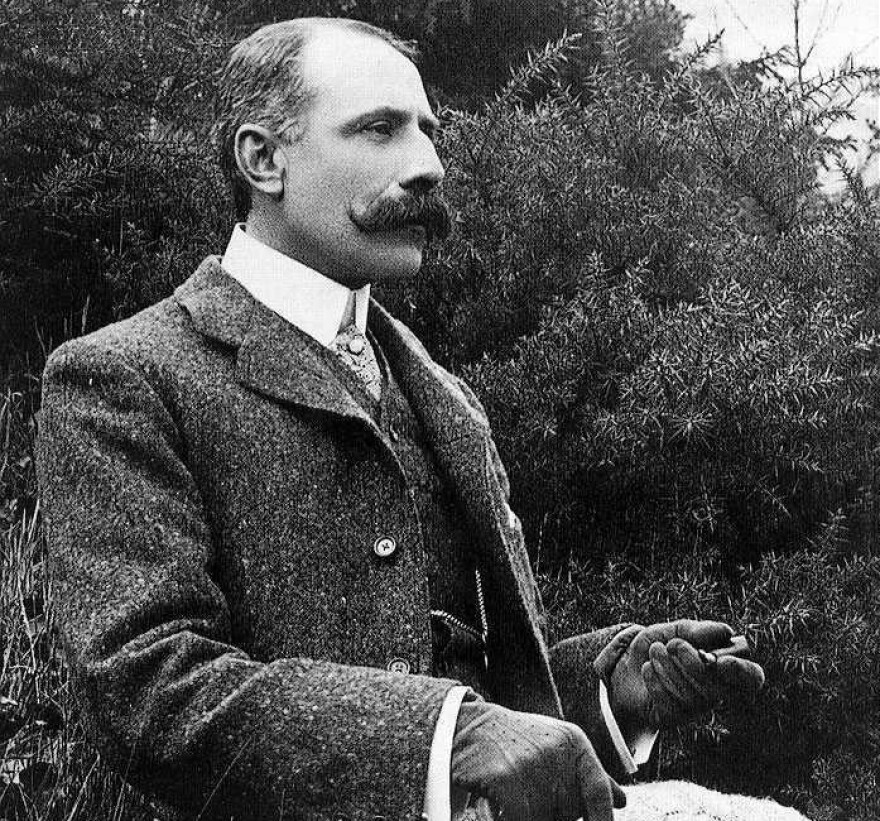What began as Sir Edward Elgar's playful improvisation on the piano, led to international acclaim for one of his most beloved and mysterious works.
Conductor Edward Gardner leads The Philadelphia Orchestra in a program featuring Elgar's Enigma Variations on WRTI 90.1, August 24th at 1 PM, and August 25th at 7 PM on HD-2 and the classical stream at WRTI.org.
After a long day of teaching violin in 1898, Edward Elgar sat down at the piano to unwind. As his wife listened to him improvise, she perked up at one of the tunes he was playing around with. When she asked what it was, he replied, "Nothing, but something might be made of it."
And what a work he made of it. He called it "Variations on an Original Theme," with each variation a reflection of how others in his life --his wife, students, colleagues, friends and neighbors - might interpret that theme.
Elgar explained in a 1911 program note: "The work, commenced in a spirit of humour and continued in deep seriousness, contains sketches of the composer's friends. ... These personages comment or reflect on the original theme & each one attempts a solution of the Enigma, for so the theme is called. ...Each variation contains a distinct idea founded on some particular personality or perhaps on some incident known only to two people."
Philadelphia Orchestra Music Director Yannick Nezet-Seguin marvels, "Orchestrally, it's incredibly well written: the melodies, the accompaniment figures, the virtuosity." He says while musicologists have debated the source of the theme, the variations themselves intrigue him.
"I see it personally more about the life. For me, when I perform it and conduct it, the most important thing is to try and imagine the portrayal of the characters of each variation; and imagine this old lady friend, this grumpy neighbor, the dog that's walking upstream, and so forth."
The moving ninth variation has become so popular, it's taken on a life—and meaning—of its own.
In writing to his good friend August Jaeger not long after composing the work, Elgar explained, "The variations have amused me because I've labelled 'em with the nicknames of my particular friends—you are Nimrod." As Jaeger's name in German, Jager, means hunter, and Nimrod is a great hunter in the Bible, Elgar playfully nicknamed his ninth variation, Nimrod.
"It's been taken out of context so often that we play it in funerals and memorials," says Yannick, "It's actually about, and I'm not saying this because it's Philly, but it's about brotherly love."
Elgar's Enigma Variations: a work about life. "Remember the humor," says Yannick, "[and] the humanity and sincerity of all those friendships."


